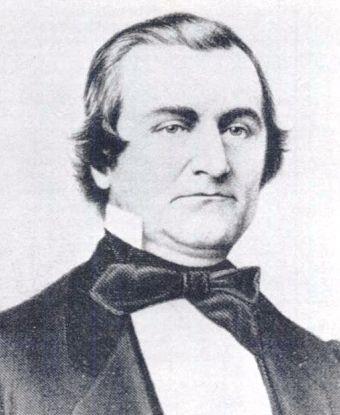Last updated: June 18, 2015
Person
William L. Yancey

Collection of U.S. House of Representatives
William Lowndes Yancey, southern politician, Confederate diplomat, journalist and orator, championed the causes of slavery, states' rights and secession in the run-up to the Civil War. Originally a Unionist, Yancey's thinking evolved following his marriage and receipt of 35 slaves as part of his dowry. As a slave owner, he began to identify with other pro-slavery positions arguing against any attempt to expand federal power, including the establishment of a national bank.
For Yancey, slavery became the most important issue facing the South. Increasingly drawn to radical Southern politics, Yancey won a seat in the Alabama House of Representatives in 1841, then after opening a law practice, won election to the Alabama Senate two years later. In the state senate he fought against adopting the "federal ratio" of counting slaves as three-fifths of a person in determining apportionment in the state legislature.
Yancey won election to the U.S. House of Representatives in 1844 and quickly acquired a national reputation based on his skills as an orator and unyielding proponent of slavery and states' rights. He resigned his seat in 1846 and returned to Alabama from where, as a member of the "fire-eaters," he eschewed any federal attempt to restrict slavery, including the Wilmot Proviso and the Compromise of 1850. At the 1860 Democratic National Convention, failure to adopt Yancey's pro-slavery platform caused a split in the party between North and South factions, leading to the election of Abraham Lincoln.
Following secession, Yancey served as Confederate emissary to Britain and France. Unable to convince either country to recognize the CSA, he returned home in 1863 and served in the Confederate Senate until his death in 1863.
